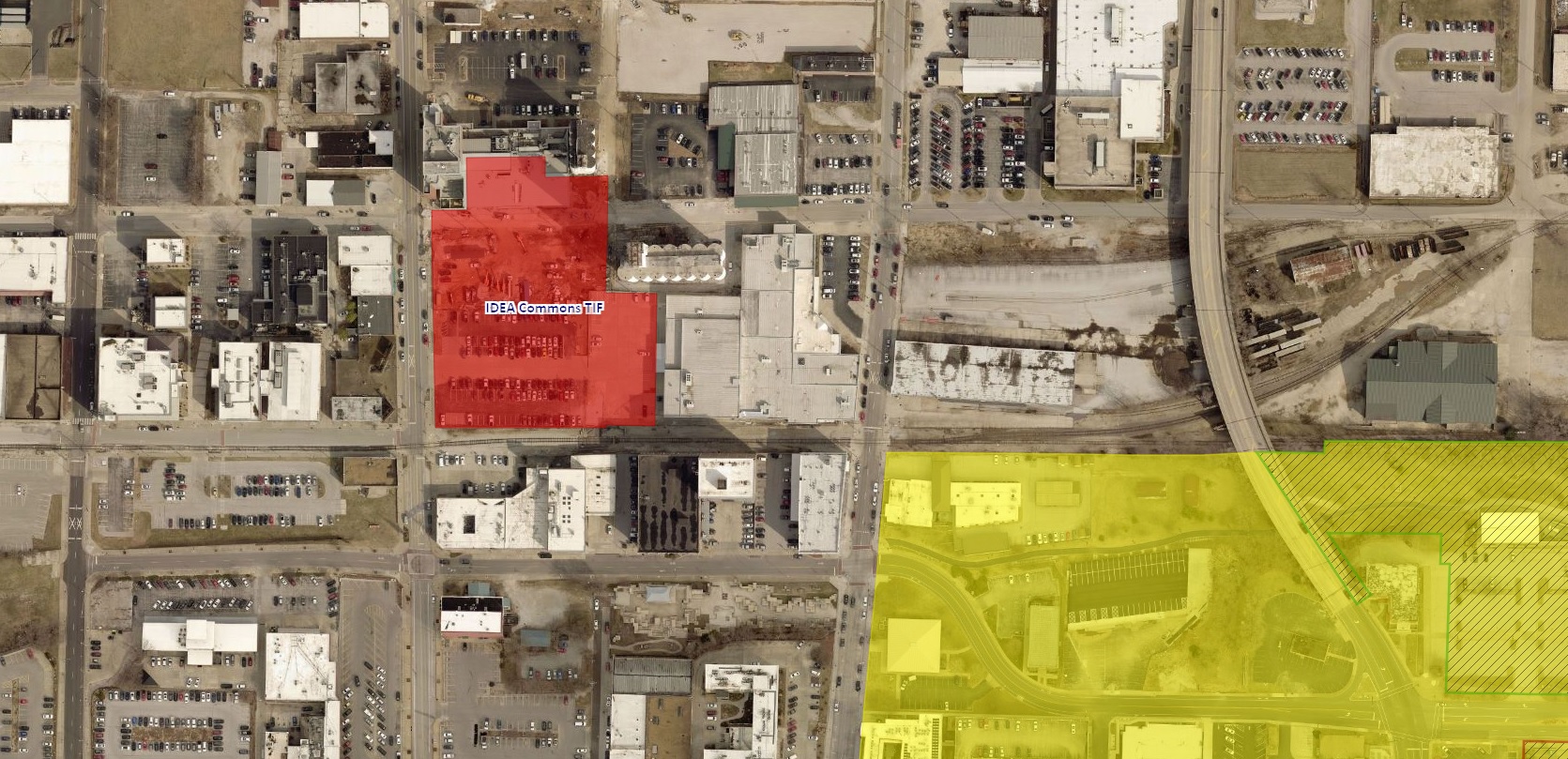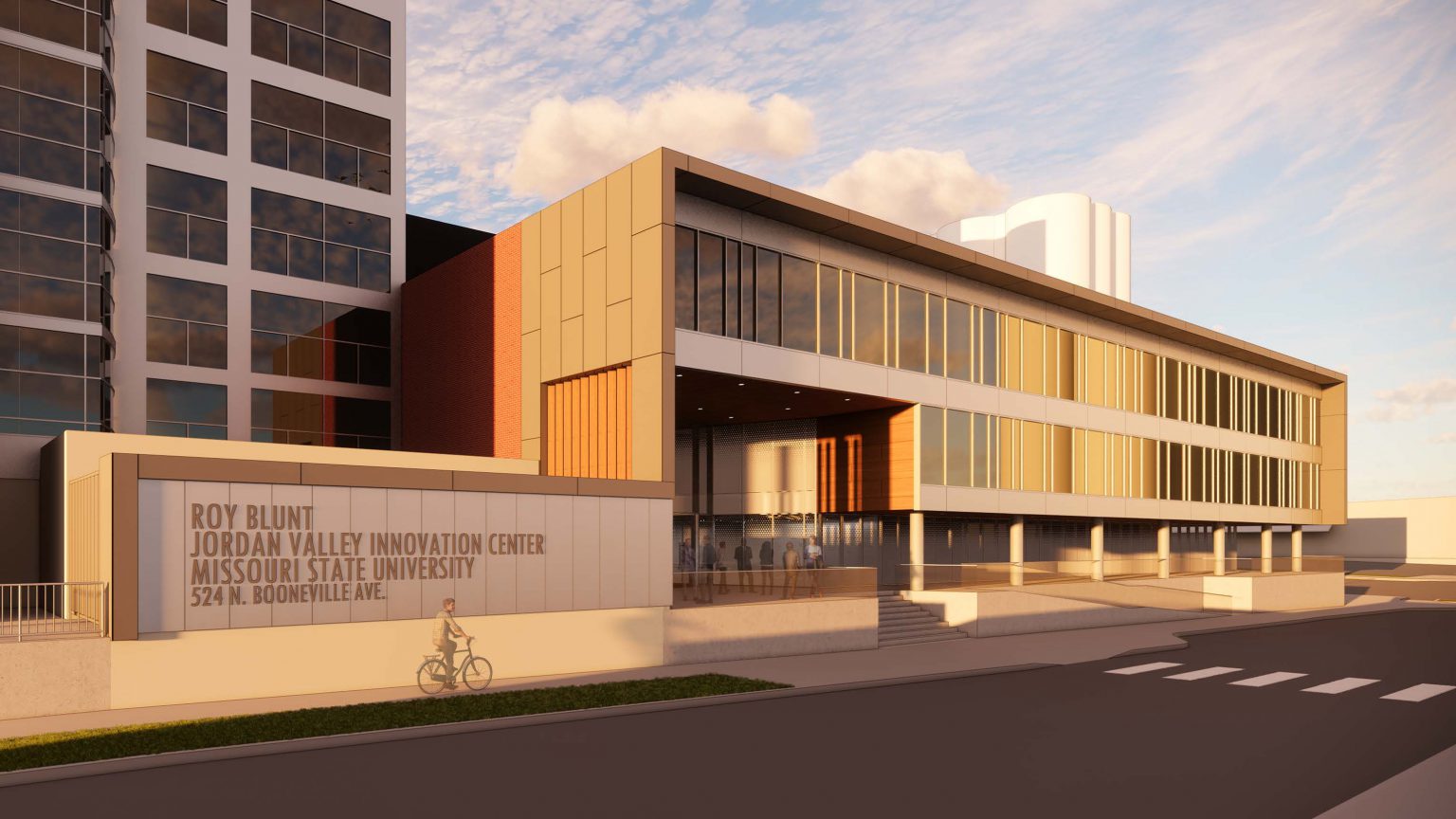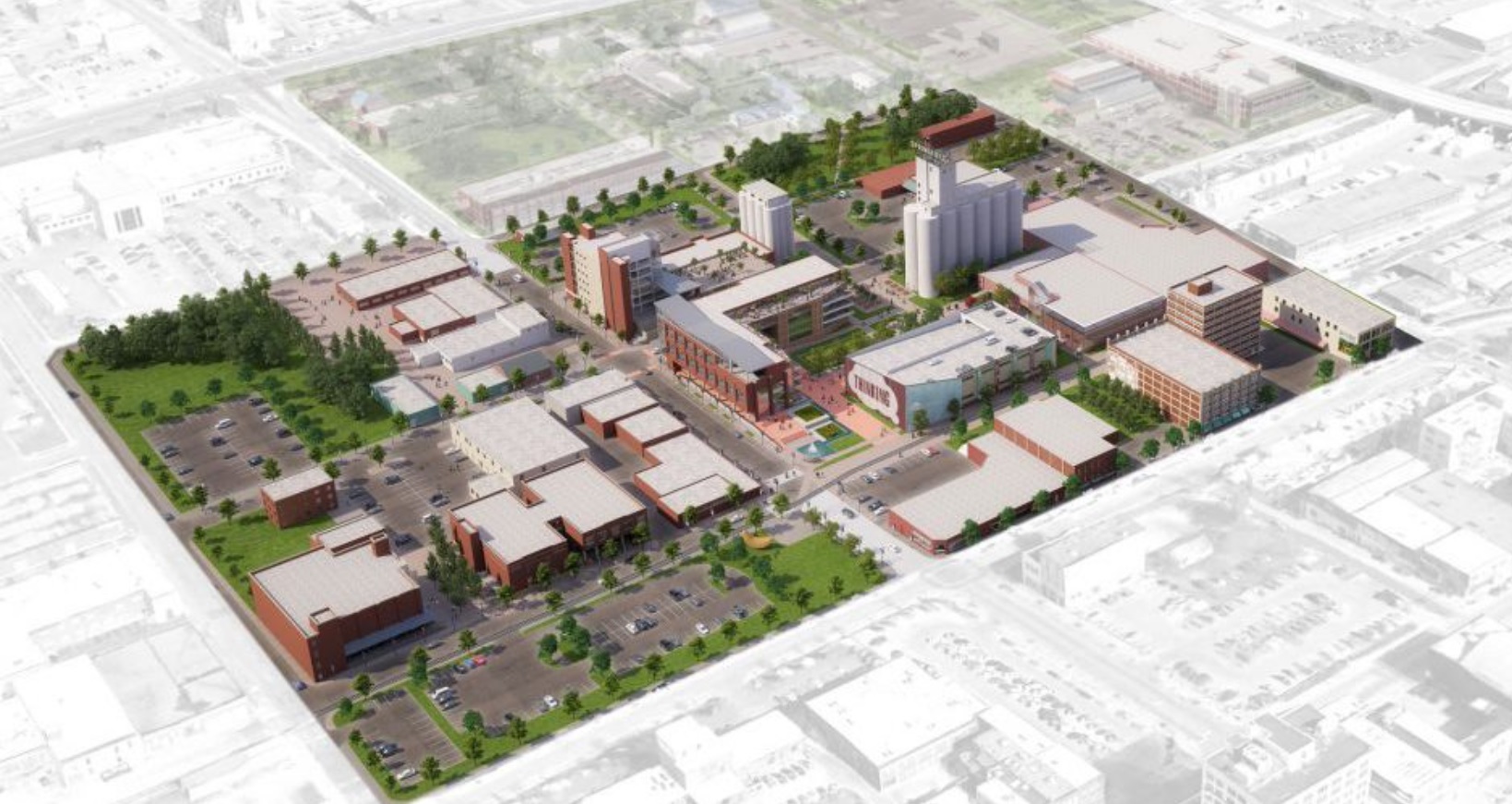Plans are under adjustment in downtown Springfield’s IDEA Commons district, a three-way partnership with a long-term goal to make “a hub where people from all walks of life can live, shop, learn, create and work.”
The Springfield City Council made an 8-0 vote on Nov. 14 to restructure the IDEA Commons development agreement with Vecino Group and Missouri State University, changing some of the financial incentives tied to the project. The move will split the project into two pieces, breaking the development plan into stages.
IDEA Commons is being developed with three main goals: create new jobs with higher-than-average wages, eliminate blight in downtown Springfield and promote economic growth.
IDEA Commons sits on land that was once a Missouri Farmers Association (MFA) Co-op facility. Today, it is home to the Roy Blunt Jordan Valley Innovation Center (JVIC), a business incubator that leans into technology-based startups, at Boonville Avenue and East Phelps Street.
Springfield Director of Economic Vitality Amanda Ohlensehlen explained to the City Council that the original plan for IDEA Commons was adopted in 2020, and the plan was amended in 2021.
“Basically, this item will be the second amendment to the TIF plan in order to put the larger TIF contract on hold and proceed with a scaled-down agreement between the city and MSU to address reimbursements for the components of the project that have already been constructed,” Ohlensehlen said.
What is a TIF, and how much money is involved?

Tax increment financing, as defined by the Missouri Department of Revenue, “permits the use of a portion of local property and sales taxes to assist funding the redevelopment of certain designated areas within your community.” It uses estimated property tax revenue gains from the future to offset the cost of building projects at the present time.
Tax increment financing is meant to offset the costs of developing public infrastructure, like roads and utilities, associated with the overall costs of a building project. Tax increment financing projects, under Missouri law, must pass the “but, for” test, that is to say that the project would not be built and completed but for the financial assistance tax increment financing provides.
According to documentation from the Missouri Department of Revenue, the estimated cost of the IDEA Commons project is $55,397,284. That cost is to be recalculated, according to the City Council bill passed Nov. 14.
“When the scale, cost and timing of the remaining project area have been determined, we can revisit the all-encompassing TIF contract with the developer,” Ohlensehlen said.
The total reimbursable cost of development is $6.25 million, or 11.2 percent of the overall project cost. The original agreement had a 23-year period until the TIF would be retired.
The amendment the Springfield City Council approved is part of an application to restructure the TIF agreement with the Missouri Department of Economic Development so that the start year is 2020.
“Any disbursement of state funds has a condition that the city amend the plan, so this will help us maximize those revenues from the TIF and proceed with a portion that’s already been constructed, the JVIC expansion,” Ohlensehlen said.
Inside the numbers on IDEA Commons

IDEA Commons is part of the Missouri State University Board of Governors’ action plan for 2022-2023. According to the plan, the development is the key piece to the university growing its “opportunities for business development and commercializing research, support for entrepreneurship and innovation, and small business consulting, mentoring, and training.”
The IDEA Commons project is to have a 100,000-square-foot office building, a 30,000-square-foot expansion of the Jordan Valley Innovation Center, a 400-space parking garage, stormwater improvements, sewer line relocation and sidewalks, street lights and landscaping.
“Since the TIF Plan was approved, only construction of the JVIC Expansion has commenced, while construction of the office building and the parking garage have been delayed,” Springfield Senior Planner Matt Schaefer wrote in the official explanation for the city council bill. “To maximize the collection of TIF revenues over the entire redevelopment area, it is necessary to divide the redevelopment area into two redevelopment project areas in which tax increment financing can be activated separately.”
Missouri State Board of Governors records show IDEA Commons brought in about $10.9 million in research and grant support funding in the 2021-2022 academic year. IDEA Commons staff members made contact with nearly 1,500 new business clients, and the IDEA Commons project helped create 438 new jobs in 12 months.
Over a five-year span, IDEA Commons is credited with helping to generate 1,625 new jobs, and with helping to bring more than $49.6 million in grant revenue and research funding to Missouri State, according records from the Board of Governors Programs and Planning Committee.


